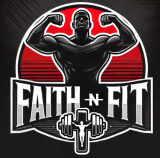A muscle strain is a twist or a tear of a muscle or tendon. Tendons are tissues that connect your bones to your muscles. Think of a tendon as a solid elastic band between the end of a muscle and the bone.
Muscle injuries are associated with athletes’ upper and lower back, upper thigh, abdomen (core section), and arms at the shoulder or elbow.
Strains often occur by overtraining, lifting too heavy, over-stretching, or over-tightening a muscle. In addition, a lack of rest, age, working muscles far too hard, and previous injury can put you at a higher risk of muscle strain. There are three levels of muscle strain: mild, moderate, and severe. Treatment may depend on which of the three types you have.
Strained muscle signs include swelling and bruising, pain when moving the area, and strength loss. To determine the severity of the injury, you may need a CT (computed tomography) scan, ultrasound, MRI (magnetic resonance imaging) scan, or an x-ray.
Treating muscle strains
The most common treatment for muscle strains is RICE, which means Rest, Ice, Compression, and Elevation. Applying the RICE method will reduce the risk of swelling and bruising, which will help stop the damaged area’s internal bleeding and decrease pain.
Rest -Rest your muscle to allow your injury to heal. I would rest for at least 3 to 7 days immediately after the injury. After that, rest should be for severe muscle strain for 10 to 14 days. When the pain decreases, begin regular, slow movements. You may need crutches to walk if your muscle strain is in your legs or lower body.
Ice –
Put a towel around an ice pack (or bag of frozen vegetables) and hold on to the injured area. Do not put the ice pack directly on your skin.
Compression –
Wrap an elastic bandage around the area to decrease swelling. It should be tight enough for you to feel support but not so tight as to affect circulation.
Elevation –
Keep the injured muscle raised above your heart if possible. For example, if you hurt your lower leg muscle, lie down and prop your leg up on pillows.
Tips to prevent muscle strain:
Warm up before you exercise.
Ten minutes of low to moderate effort on a bike or cross-trainer or walking on a treadmill with a slight incline will prepare your muscles for exercise.
Cool down after your workout
Try 10 minutes on any cardiovascular equipment, like the stationary or recumbent bike. Do this at a slow pace, as you are cooling down now.
Rest
Rest is vital to give your muscles time to recover from injury. Anti-inflammatory pain relievers can also be used to decrease swelling and pain.
The Last Word on Muscle Strain.
Your doctor may suggest you have an injection into the muscle, physical therapy, or in severe cases, surgery. Rest and recovery combined with warming up and cooling down will help prevent another muscle injury.
If you or someone you know is looking to improve your health, share this article on Facebook or Twitter so that others can learn more about self-care.
Related Articles
- How Bodybuilders Use Strength Training to Cause Muscle Growth
- Technology – How Computers Quietly Destroy People’s Health
- Dry Eyes and Allergies: What You Need to Know
- Leg Anatomy – How to Use Science to Build Bigger Muscles
- Russian Twist Exercise – Use to Build Core and Obliques
Subscribe now and get a 14-day free trial workout app for iPhone users.






